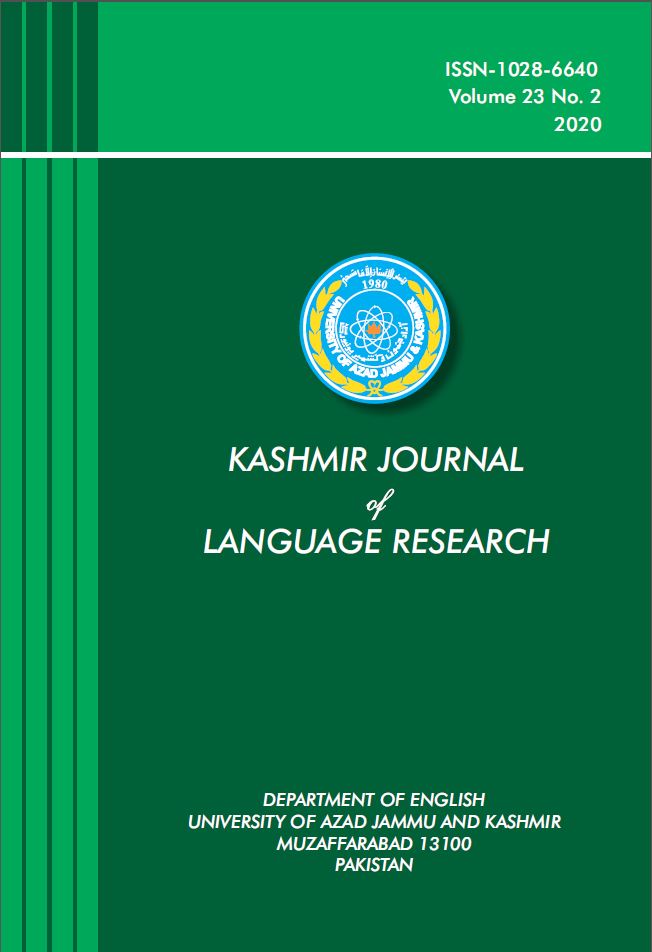Neoliberalism and Contemporary Pakistani Fiction: Water, (post)Development and Commodification in Mohsin Hamid’s “How to get Filthy Rich in Rising Asia”
Keywords:
Neoliberalism, (Post) Development, Commodification, Capitalism, SimulationAbstract
Due to the induction of neoliberal capitalist structure(s) in the once-colonized nations, literary and cultural representations— once dominated by nationalist discourse(s)—have buckled under the late capitalist pressure to disavow their conformity to indigenous literary representations and hence, conform to a simulated version of commodified reality shaped and maintained by the neoliberal imaginary at the cost of the local ecological and cultural resources. Mohsin Hamid, in “How to get Filthy Rich in Rising Asia”, situates contemporary Pakistani fiction from a national onto a neoliberal epistemological frame to probe and re- assess the rags-to-riches tale of entrepreneurial success of his nameless protagonist. Hamid, rather than presenting this tale from a monolith Eurocentric neoliberal perspective, scrutinizes this discourse of entrepreneurship and (post)development from below and questions its relevance and appropriation in the context of the third world Asian countries where rugged commodified individualism (de)shapes the individuals’ desires for simulated neoliberal stereotypical version(s) of reality. For this purpose, this paper focuses on the appropriated and exhausted myth of Capitalist (post)development which unleashes the neoliberal forces of deregulation and privatization and makes vulnerable and prone to exploitation the natural resources like water in the form of commodification. Hence, this paper foregrounds the shift in contemporary Pakistani fiction from postcolonial/nationalist epistemology to capitalist neoliberal imaginary.

Downloads
Published
Issue
Section
License
Copyright (c) 2021 Kashmir Journal of Language Research

This work is licensed under a Creative Commons Attribution 4.0 International License.




